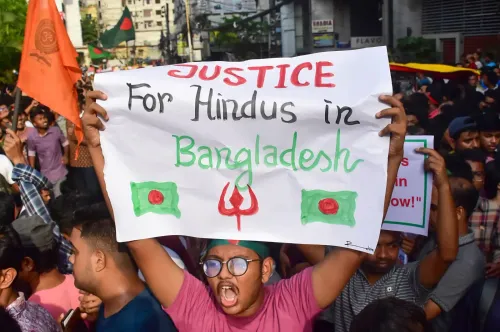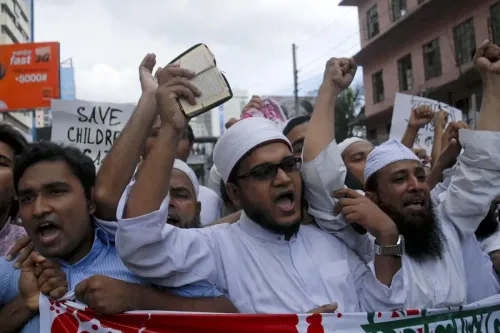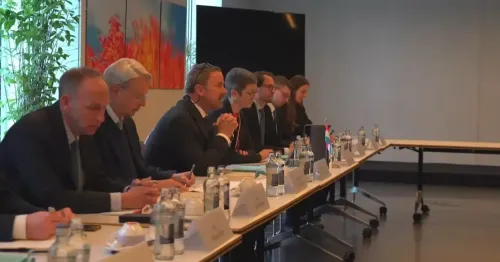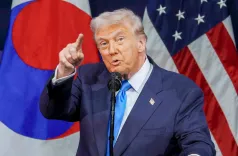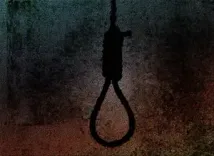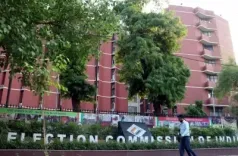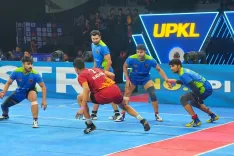Why Did Student Groups in Bangladesh Boycott the 'July Declaration' Event?
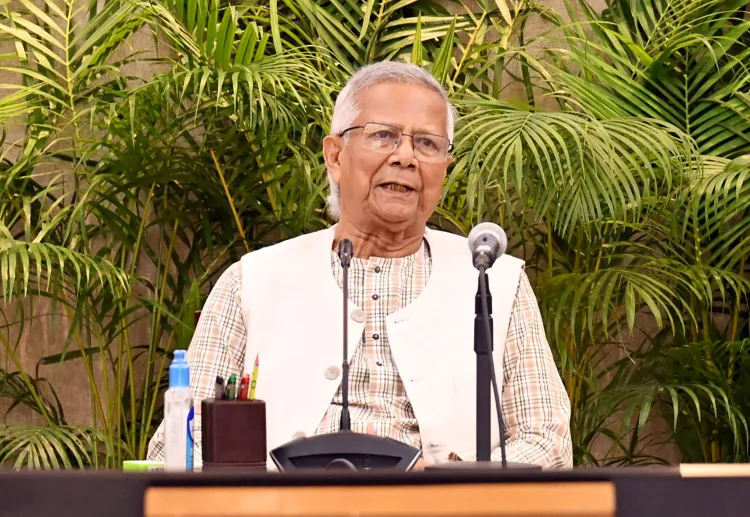
Synopsis
Key Takeaways
- Students boycott July Declaration event
- Claims of exclusion and disrespect
- Political divisions among parties
- Need for recognition of student activism
- Implications for interim government’s credibility
Dhaka, Aug 5 (NationPress) As the interim government of Bangladesh prepares for a 'July Declaration' ceremony, students who participated in protests aimed at ousting former Prime Minister Sheikh Hasina have chosen to boycott the event. They expressed that their 'courage' has become 'worthless' in under a year, as not all members received invitations.
Scheduled for Tuesday at Manik Mia Avenue in Dhaka, the Chief Advisor's Press Wing confirmed the event on Saturday. The Charter will be unveiled in the presence of all parties that took part in last year’s July demonstrations.
Abdul Hannan Masud, the coordinator of Students Against Discrimination (SAD) and Senior Joint Chief Coordinator of the National Citizen Party (NCP), announced his decision to boycott via social media.
“I learned that the government failed to invite the 158 coordinators and co-coordinators, who represent the legitimate body of the July Uprising. While they may have prepared a few seats, it will not accommodate all 158 individuals,” Masud stated on Facebook.
“Those whose courage and leadership led to this coup and government are deemed worthless in less than a year. If my fellow activists, who spearheaded the movement against Hasina, are not given the respect they deserve, I, Abdul Hannan Masud, will personally boycott the July Declaration event,” he added.
Saikat Arif, the General Secretary of the Students' Federation, also confirmed their decision to withdraw from the event, saying, “The government has not consulted with student organizations regarding the July Declaration and has not held any meetings with us in the past year. By designating a specific group of anti-discrimination activists as the leadership of the coup, they have wronged other student organizations and compromised the impartiality of the interim government. Therefore, we will not attend tomorrow,” as reported by leading Bangladeshi newspaper Jugantor.
Reports indicate significant divisions among major political parties in Bangladesh, with the National Consensus Commission (NCC) struggling to achieve consensus on various reform proposals in the second round of negotiations.



